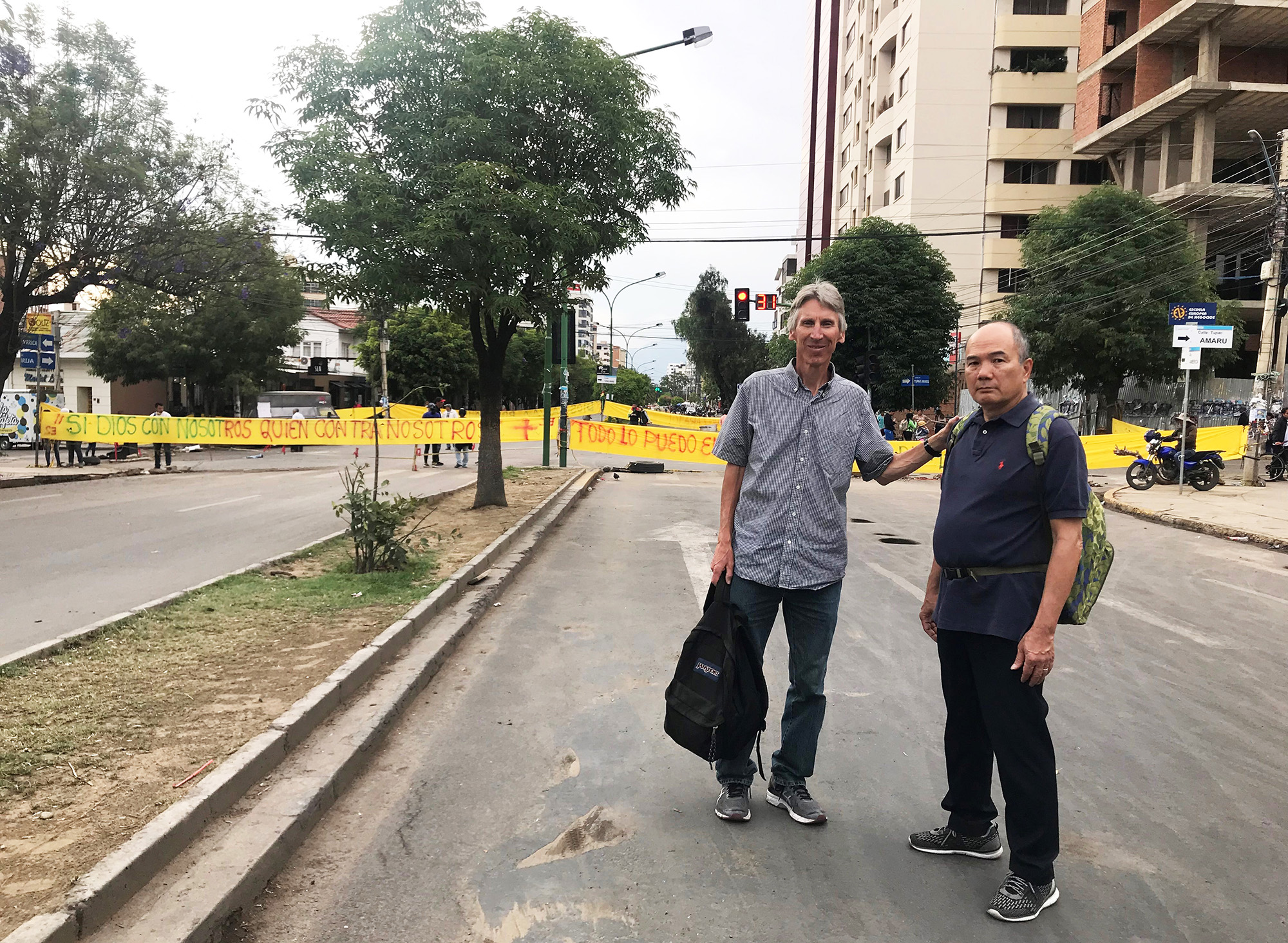
Joe Loney (left) and fellow Maryknoll lay missioner Hiep Vu in Cochabamba during recent street blockades. Since the Oct. 20 national election, the country has been in great turmoil.
Our motivations come from many different places and in many different forms. As parents, we want the best for our children and so we are motivated to sacrifice so that they have the best education, for example, that we can provide. As neighbors, we want to live in the best neighborhood so we are motivated to keep up our homes, gardens and lawns. As citizens, we are motivated to have good governments so we participate in elections and advocate for policies that will benefit us.
What happens, however, when we are not motivated by love for our children or by pride to make our neighborhoods better or by allowing each voice to be heard and counted by democratic elections?
Just a week ago I learned what happens when ordinary women and men let irrational fear of the other human being become the driving force or motivation for their actions. Three weeks of largely peaceful civil unrest had culminated in the resignation of the Bolivian President Evo Morales. A new interim president had taken office just the day before.
Instead of a feeling of tranquility, a feeling of uncertainty, concern and outright fear began to take over. Our neighborhood siren went off. Neighbors came out of their homes at about 7 p.m. Social media began to spread messages that the supporters of former president Evo Morales were out for revenge. Our local police chief—via WhatsApp and YouTube videos—urged neighbors to form protection committees. The fear expressed was that looting and vandalism would triumph.
I went out to see what the anti-Morales activists in my neighborhood knew about the “dangers” at a nearby blockade. They told me that from the West armed groups of campesinos were marching toward our city from the countryside. Estimates were that they would be in our area within an hour, and the local anti-Morales leaders urged me to organize a self-defense group in my sub-section of our neighborhood.
Upon returning just outside my home, I found that approximately 50 women, men and children had gathered. People commented that the news was that within the next 30 minutes the campesinos would arrive. The group quickly decided to block the two entrances to our neighborhood with stones, wood, used barrels, roofing sheets and anything that would form a barrier. “Donations” of a roll of barbed wire, used fences and more appeared.
I found myself caught up in the fear and began to help build the barricades by helping to dig out the cyclone-fencing gates to our street, which had been locked in an open position when the new cobblestone street was laid down.
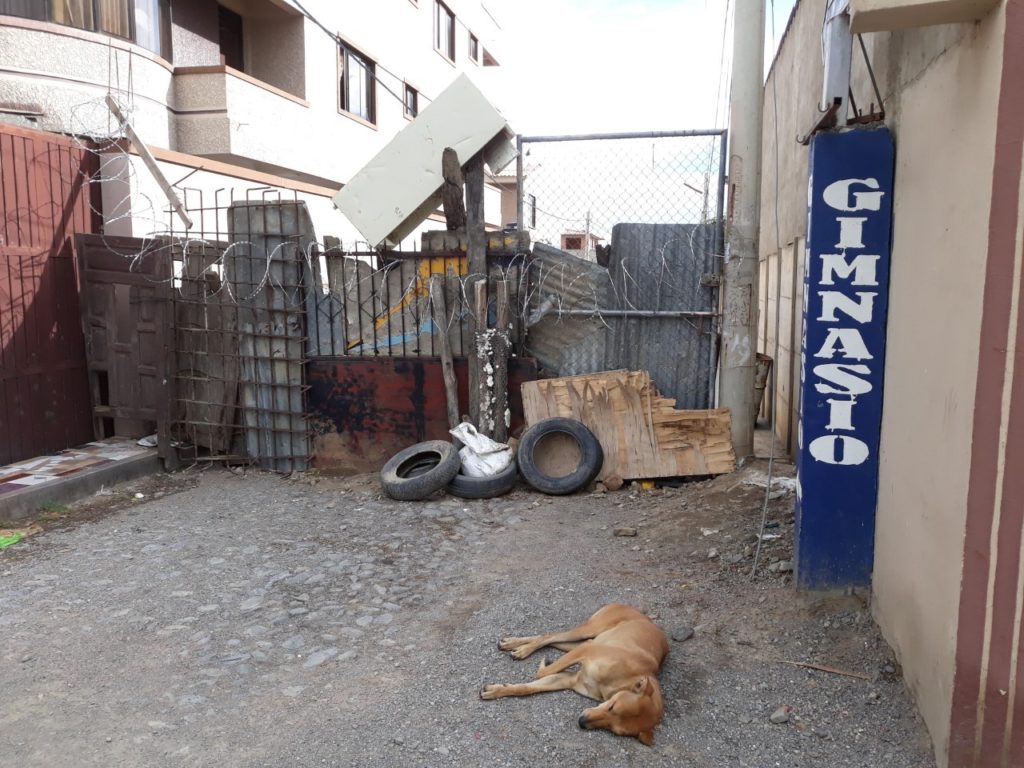
At one end of our street, neighbors erected a makeshift barricade topped with barbed wire and a refrigerator.
At the other end of the L-shaped street, my fellow neighbors had even managed to crown their barricade with barbed wire and an old refrigerator.
Once the blockades were in place, night watchpersons were designated. I returned to my home, where we nervously waited. Two hours passed and the campesions did not come. My children, my wife and I fell asleep.
The next day Filo and I realized that we had fallen victims to a collective psychosis. Fear of the assumed danger had consumed us and our neighbors. We had thought the worst. We had perceived that the Morales supporters were evil and would be out for vengeance.
Watching the morning news, we learned that our experience had been repeated across the metropolitan area of roughly 900,000 habitants. Literally thousands of barricades had been constructed in just over an hour. The armed groups of angry, vengeful campesinos, however, never materialized.
Just two months ago I finished reading Jim Forest´s book entitled, The Root of War is Fear, which reflects on the writings of Thomas Merton. Filled with righteousness, I had told myself that I would learn the lessons written by Merton and would not fall victim to irrational fear.
But as I write this now, I recognize my sin. Although I have a deeper appreciation of the role that fear plays in motivating our actions, I wonder how I will respond the next time that fear of my fellow human beings rears its ugly head.
A week after the night of our “collective psychosis,” my neighbors and I had a meeting to discuss what we should do about the one entrance to our neighborhood that is still barricaded. I found myself in a distinct and overwhelmed minority who supported taking down the barricade. Despite the many nods when I spoke about the message we were sending to our fellow human beings and the harm we were doing to our mental well-being by maintaining the barricade, I failed to convince a single person to join my position.
As a high-school student I was amazed to learn of the 1938 evening radio broadcast “War of the Worlds” by Orson Wells, during which collective, unfounded fear caused a wide-spread panic. As an adult, I am no longer so smug in my ability to confront the devil within.
As a resident of Bolivia during these horrible times of conflict, tension and fear, I now have a very small understanding of the challenges to restoring peace when fear abounds.
Photo by Tawny Thanh

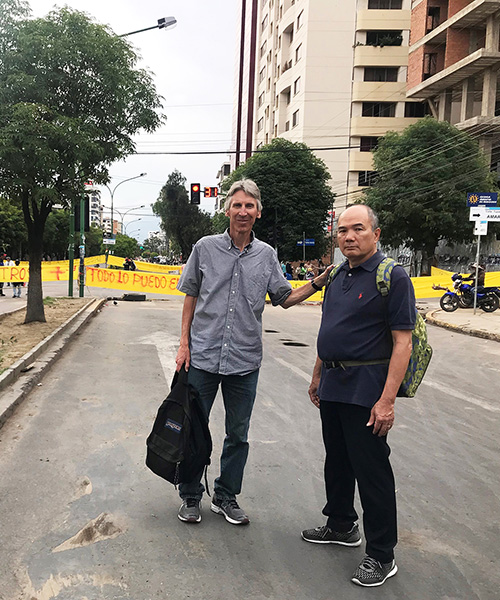

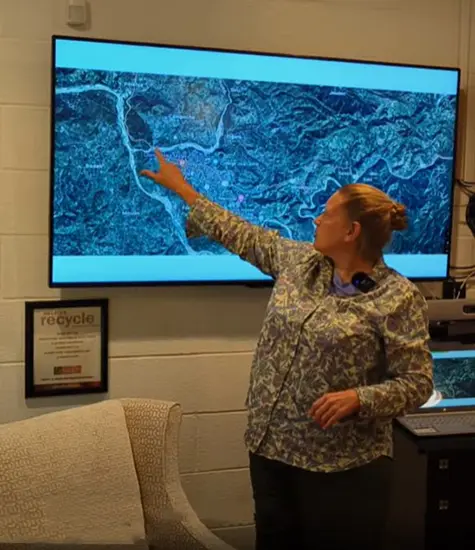
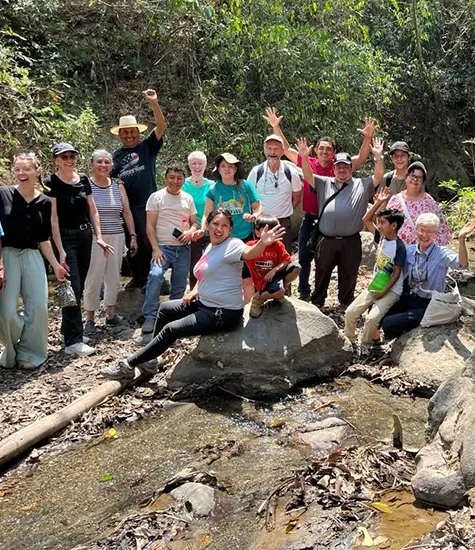
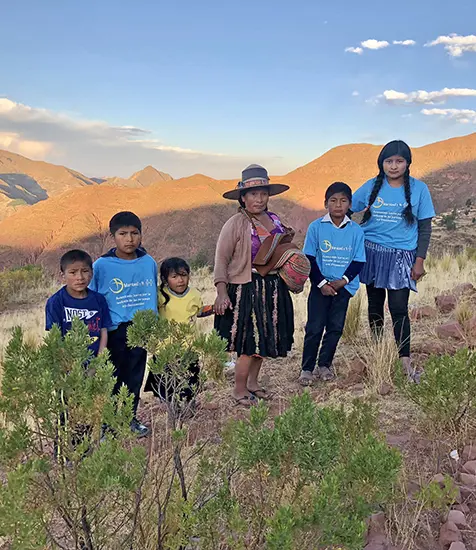




Our daughter, Cortney Freshwater, is a Maryknoll lay missioner to Bolivia and is currently home in the states on a short vacation. She is insistent that she return this weekend to take up her position as a missioner and her mother and I are beside ourselves with concern. We pray daily that things in Bolivia are calming down and that she will be safe long term. Reading this article does provide a small sense of relief that common sense and human decency will prevail during these difficult transitional times in the country. Thank you.
Bill Freshwater
Hi, Bill.
Thanks for sharing your concerns. As a Maryknoll employee who had the good fortune to meet your daughter during her orientation (and was most impressed by her intelligence and dedication to mission), I just want to let you know that the Association is doing all it can to ensure the safety of our missioners in Bolivia and throughout the world. During this time of crisis, I know our directors have been busy communicating daily with our missioners in Bolivia, following news reports, and making decisions with the missioners’ safety always first in their minds.
So please keep all our missioners in your prayers, and I will say a special prayer for Cortney today. May God bless and keep your family!
Thank you Joe for your sharing. I had the same feeling of fear several times during the war in South Vietnam. First it was the coup and assassination of president Ngo Dinh Diem in 1963, then the Tet offensive in 1968, the fiery summer of 1972 and finally the communist invasion in April 1975. The fear was real and it was very scary.
Hong and I continue to pray for the safety of you and our fellow missioners in Bolivia.
Sonny Nguyen